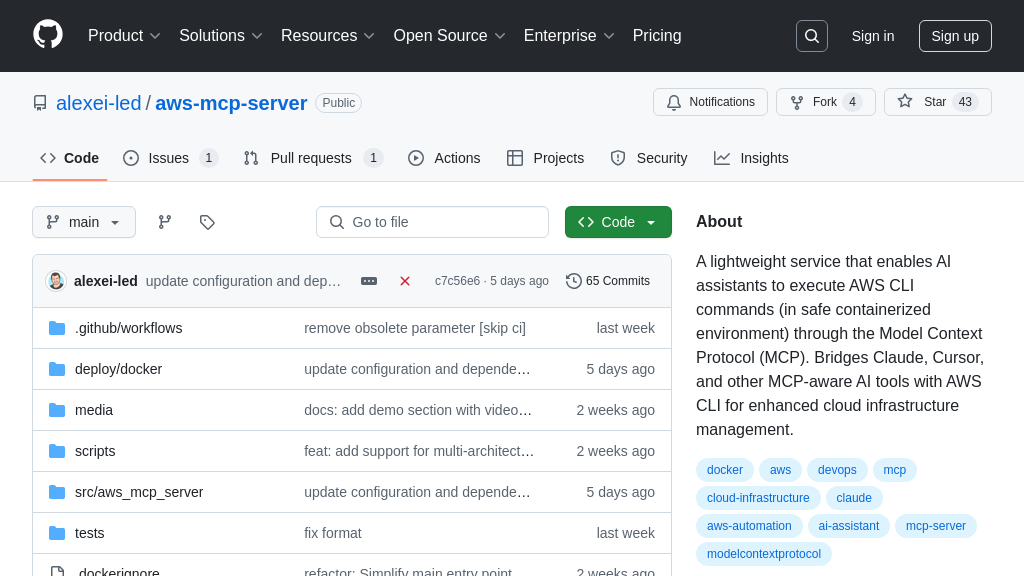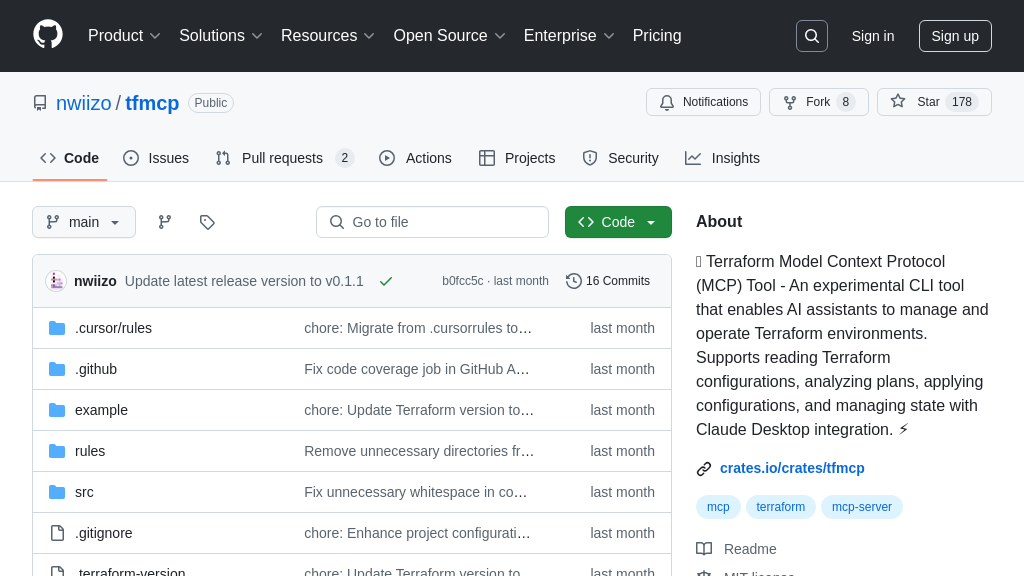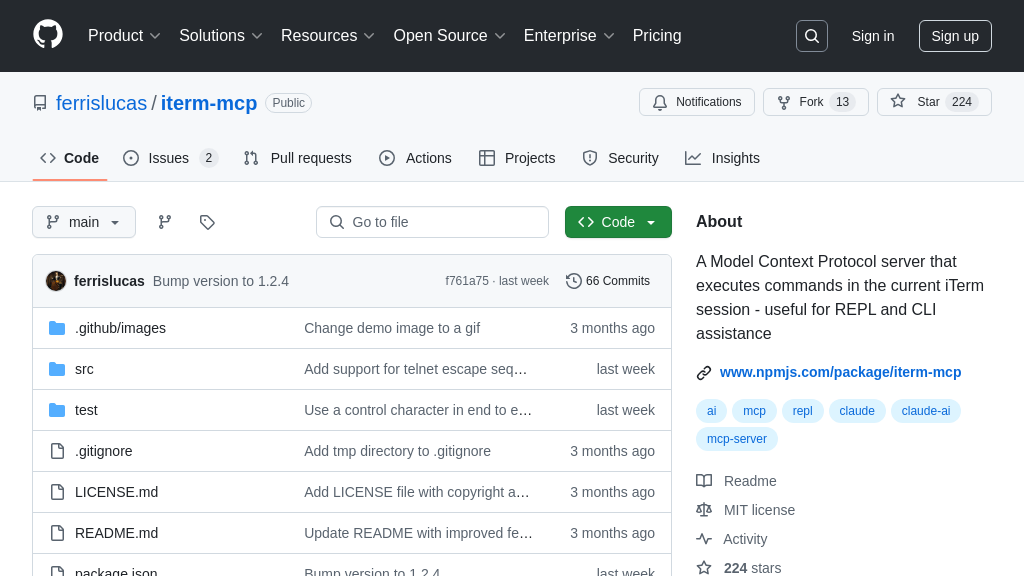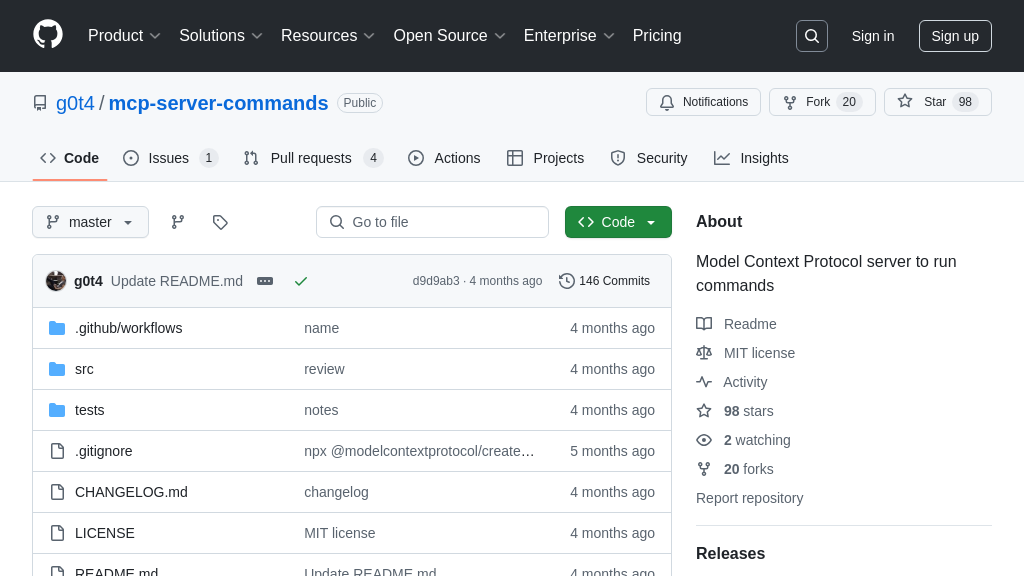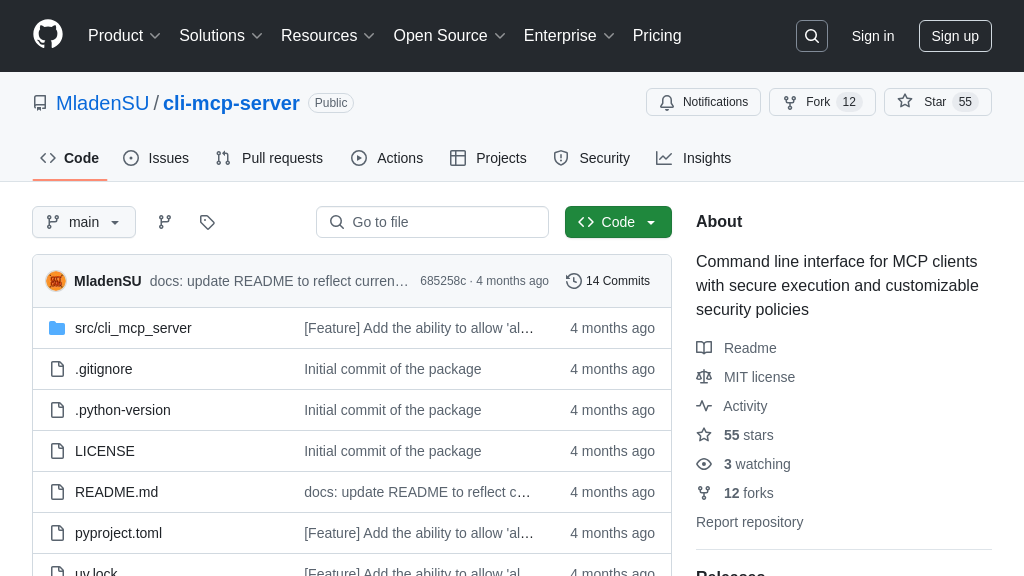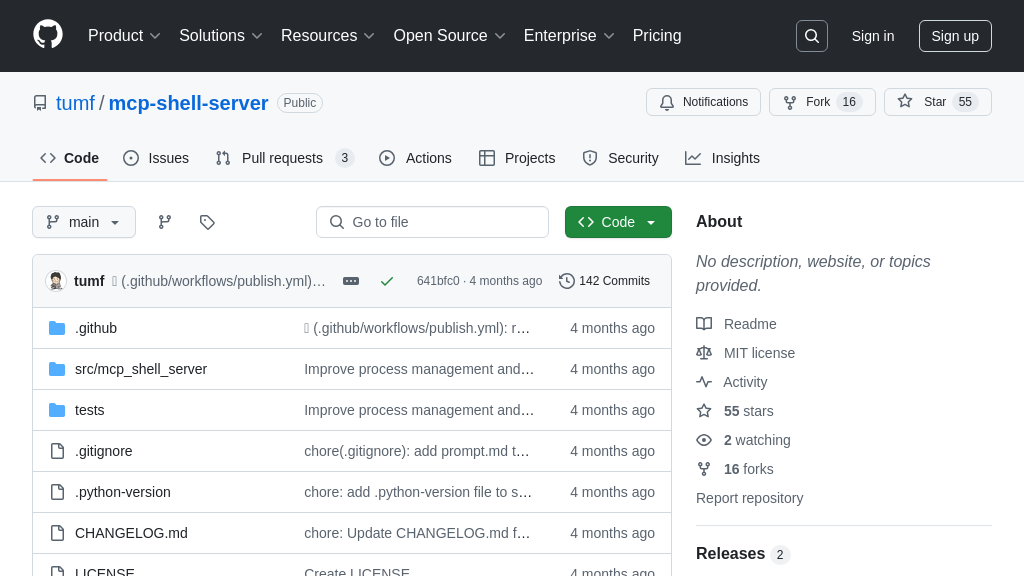tavily-mcp
Tavily MCP Server: An MCP server integrating Tavily's advanced web search (tavily-search) and data extraction (tavily-extract) tools with AI models via clients like Cline, Cursor, and Claude Desktop. Provides real-time web intelligence through the standardized Model Context Protocol.
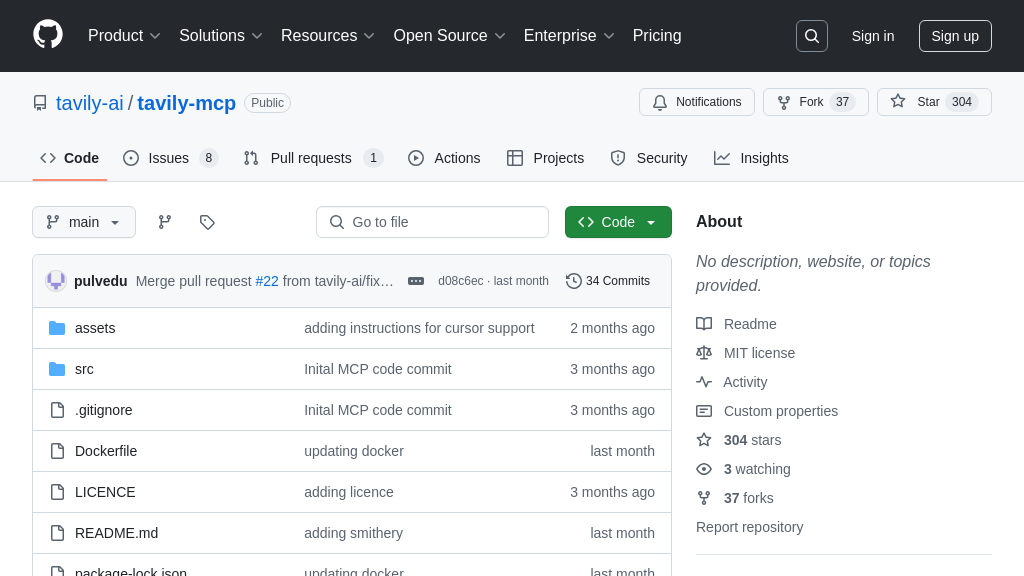
tavily-mcp Solution Overview
Meet Tavily MCP Server, a vital MCP Server component designed to bridge AI models with the dynamic web. It seamlessly integrates AI like Claude with Tavily's specialized search engine using the Model Context Protocol (MCP). Developers gain powerful tools: tavily-search provides real-time, filtered web results, overcoming knowledge limitations, while tavily-extract intelligently pulls structured data from specified web pages. This server significantly enhances AI capabilities by granting access to current information and sophisticated web data analysis. It solves the critical developer challenge of connecting static models to live data securely. Integration is streamlined; configure compatible MCP clients (e.g., Cline, Cursor, Claude Desktop) to run the server, typically via a simple NPX command and your Tavily API key, enabling robust interaction through the standardized MCP framework.
tavily-mcp Key Capabilities
Real-time Web Search Access
The tavily-mcp server equips AI models with the tavily-search tool, enabling direct access to Tavily's advanced search engine via the Model Context Protocol (MCP). This core functionality overcomes the inherent knowledge cutoffs of static AI models by providing them with real-time information from the web. The tool allows for sophisticated queries, including filtering by timeframes (e.g., news from the last 7 days) and searching within specific domains (e.g., nature.com, sciencedirect.com). When an AI model, connected through an MCP client like Cline or Claude Desktop, needs current information or data beyond its training set, it can invoke tavily-search. The tavily-mcp server receives the request, queries the Tavily API using the provided API key, and returns structured search results directly into the AI's context window. This seamless integration allows developers to build AI applications that can perform timely research, fact-checking, and stay updated on recent events without complex custom integrations, leveraging the standardized MCP interface. It directly enhances the AI's ability to provide accurate, up-to-date answers and analysis based on current world knowledge.
- Example: An AI assistant asked about "recent developments in quantum computing" can use
tavily-searchto query the web for articles published in the last month on specified research domains, providing the user with the latest findings. - Technical Detail: Leverages the Tavily Search API endpoint. Requires a
TAVILY_API_KEYenvironment variable configured on the server side for authentication.
Intelligent Webpage Content Extraction
Complementing its search capabilities, tavily-mcp provides the tavily-extract tool, allowing AI models to intelligently extract the main content from specified web pages using MCP. This feature goes beyond simply fetching raw HTML; it processes the target URL to isolate the core textual information, effectively removing boilerplate elements like navigation bars, advertisements, and footers. When an AI model encounters a URL—either provided by the user or discovered through a tavily-search result—it can utilize tavily-extract to obtain the relevant content. The tavily-mcp server manages this process by invoking the Tavily Extract API. The cleaned, structured text content is then relayed back to the AI model via the MCP connection. This empowers AI models to "read" and comprehend the substance of web articles, reports, or documents, enabling tasks like summarization, detailed analysis, or answering specific questions based on the extracted information, rather than relying solely on search snippets or metadata.
- Example: After using
tavily-searchto identify a relevant news article URL about a specific company's earnings report, an AI can employtavily-extractto retrieve the full article text and subsequently summarize the key financial results for the user. - Technical Detail: Utilizes the Tavily Extract API endpoint. The
tavily-mcpserver handles the network request, content parsing, and returns the cleaned text data structure via the MCP standard.
Seamless MCP Client Integration
A core functional characteristic of tavily-mcp is its design as a standard-compliant MCP server, ensuring broad compatibility and straightforward integration with diverse MCP clients such as Cline (VS Code extension), Cursor (AI-native code editor), and the official Claude Desktop application. This adherence to the open MCP standard, pioneered by Anthropic, significantly simplifies the process for developers aiming to enrich their AI applications with Tavily's search and extraction features. The solution offers flexible installation options (NPX, Smithery for Claude Desktop, Git) accompanied by clear, client-specific configuration guides, often requiring only minor adjustments to JSON settings or utilizing built-in marketplace functionalities. By serving as a standardized intermediary, tavily-mcp abstracts the underlying complexities of direct API calls and authentication, enabling developers to readily utilize the tavily-search and tavily-extract tools within their preferred AI interaction environments. The server operates locally, securely managing the Tavily API key and facilitating communication between the MCP client and Tavily's backend services according to the MCP specification.
- Example: A developer using the Claude Desktop app can install
tavily-mcpusing Smithery or NPX, configure it in theclaude_desktop_config.jsonfile with their API key, and immediately gain access to the Tavily tools within their Claude conversations, indicated by the MCP hammer icon. - Technical Detail: Implements the MCP server-side specification for tool discovery, description, and execution requests. Communication typically occurs via standard input/output streams or HTTP/SSE, depending on the specific MCP client's implementation. Requires Node.js (v20 or higher) as the runtime environment.
